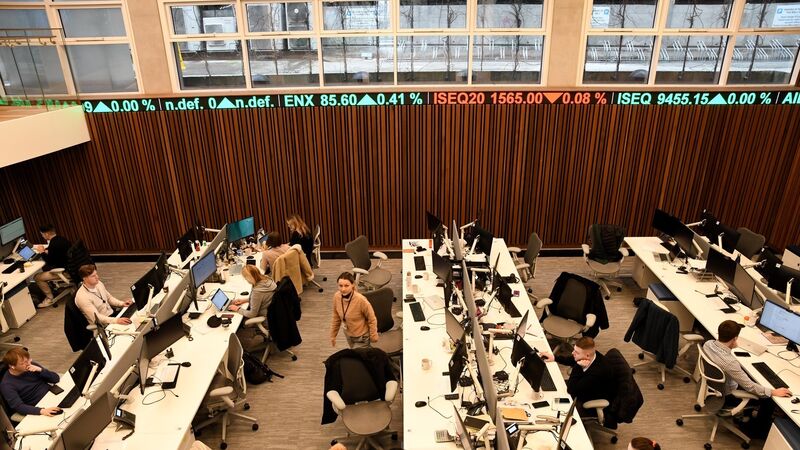We need to create the next wave of CRHs and Flutters: The future for the Irish Stock Exchange

The Irish Stock Exchange in Dublin trading as Euronext saw one new listing last year. It’s a picture that is echoed across several exchanges worldwide. The London Stock Exchange saw a drop of 49% last year with just 23 new issuers. Picture: Moya Nolan
By most measures, 2023 was a difficult year for the stock exchange at Euronext Dublin with several high-profile departures - chiefly building materials company CRH and betting company Flutter - along with a distinct lack of initial public offering (IPO) activity.
It’s a picture that is echoed across several exchanges worldwide with the London and exchanges within the Euronext Group seeing a slump in IPO activity in 2023 compared to previous years. The London Stock Exchange saw a drop of 49% last year with just 23 new issuers.











